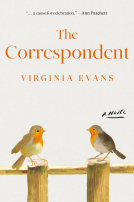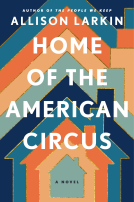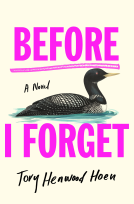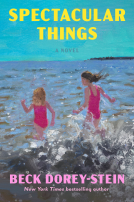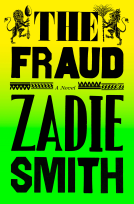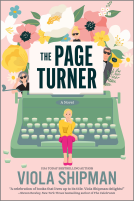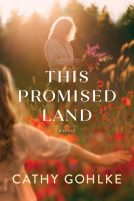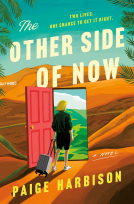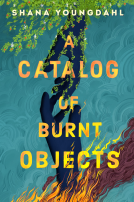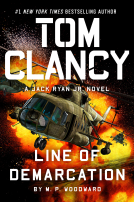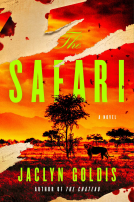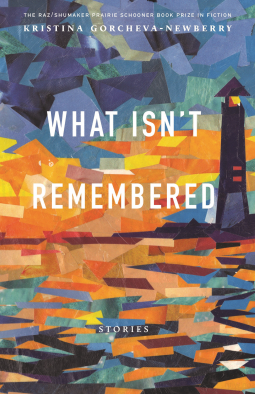
What Isn't Remembered
Stories
by Kristina Gorcheva-Newberry
This title was previously available on NetGalley and is now archived.
Send NetGalley books directly to your Kindle or Kindle app
1
To read on a Kindle or Kindle app, please add kindle@netgalley.com as an approved email address to receive files in your Amazon account. Click here for step-by-step instructions.
2
Also find your Kindle email address within your Amazon account, and enter it here.
Pub Date Sep 01 2021 | Archive Date Sep 01 2021
Talking about this book? Use #WhatIsntRemembered #NetGalley. More hashtag tips!
Description
Winner of the Raz/Shumaker Prairie Schooner Book Prize in Fiction, the stories in What Isn’t Remembered explore the burden, the power, and the nature of love between people who often feel misplaced and estranged from their deepest selves and the world, where they cannot find a home. The characters yearn not only to redefine themselves and rebuild their relationships but also to recover lost loves—a parent, a child, a friend, a spouse, a partner.
A young man longs for his mother’s love while grieving the loss of his older brother. A mother’s affair sabotages her relationship with her daughter, causing a lifelong feud between the two. A divorced man struggles to come to terms with his failed marriage and his family’s genocidal past while trying to persuade his father to start cancer treatments. A high school girl feels responsible for the death of her best friend, and the guilt continues to haunt her decades later.
Evocative and lyrical, the tales in What Isn’t Remembered uncover complex events and emotions, as well as the unpredictable ways in which people adapt to what happens in their lives, finding solace from the most surprising and unexpected sources.
Advance Praise
“Spanning ages and continents, the stories in Kristina Gorcheva-Newberry’s collection focus on complex people facing the greatest life challenges. In the best traditions of Russian and American classics, the stories are at times raw and heart-wrenching, at other times uplifting, but always a true pleasure to read!”—Lara Vapnyar, author of Divide Me by Zero
“The stories in What Isn’t Remembered are what I call wayfaring. Kristina Gorcheva-Newberry is unafraid to wend her way through the experience of being alive in her time, and her people are given the great respect of full portrayals in prose that is both delicately rendered and tough. . . . These stories will be remembered by anyone fortunate enough to spend time with them. Congratulations to a new original and powerful voice.”—Richard Bausch, author of Something Is Out There
“What Isn't Remembered is an extraordinary work of fiction: Kristina Gorcheva-Newberry has given us stories that are immersive and so richly imagined, alternately elegiac and slyly comic, always arresting and lyrical. I wanted to live in the worlds Gorcheva-Newberry has so skillfully created in one story after another. I loved this book.”—Christine Sneed, author of Little Known Facts
“You can read Kristina Gorcheva-Newberry’s What Isn’t Remembered for a revealing look into the lives of Russian immigrants in the U.S., or for the fearless depiction of relationships between women; but most of all you should read her for the startlingly gorgeous language she employs to powerful effect in story after story, from the title piece, “What Isn’t Remembered,” with its lavish allusions to classical music and the convincing correlations between life and love and art, to the heartbreaking “Boys On the Moskva River,” with its portrait of a family struggling to survive during the slow collapse of the Soviet Union. What Isn’t Remembered may be a literary debut, but Kristina Gorcheva-Newberry is a writer who comes to us in full blossom. She has clearly traveled a long road to bring us this brilliant first collection of stories.”—Edward Falco, author of Sabbath Night in the Church of the Piranha: New and Selected Stories
“Short stories beg for brevity but can accommodate plenitude, demand velocity but can in one shaken snow globe reveal a whole winter. Skilled authors can startle us with stories of consequence, gravity, and comedy in modes both elegant and earthy. Kristina Gorcheva-Newberry is such a writer. Her passionate stories about desire, loss, longing, guilt, and displacement are stunning. Her characters have wrested their survival from all manner of entanglements with lyricism and force, empathy and recognition. Gorcheva-Newberry empowers them with her own impressive trove of knowledge—the language of medicine, food, music, anatomy, apple gathering. She reveals life in the raw. Yet these are love stories, too, and can crack the heart. What Isn’t Remembered is an enthralling, beautifully conceived collection by a gifted writer.”—R. T. Smith, author of Doves in Flight
Available Editions
| EDITION | Other Format |
| ISBN | 9781496229137 |
| PRICE | $19.95 (USD) |
| PAGES | 276 |
Featured Reviews
This is a powerful collection of short stories. The author does an impressive job of vividly portraying varied scenes and characters, always keeping the stakes and tension high. I requested this book for the gorgeous cover, but the work inside kept me reading. Looking forward to more from this author.
I received a copy of this book from NetGalley.
This debut book from Kristina Gorcheva-Newberry grabs you in the first story and doesn't let go until the end. No matter which story you're reading, you are quickly enveloped in the world she creates, invested in the characters you just met. Many stories touch on the experience of Russian immigrants who came of age around the end of the Soviet Union. These aren't happy stories but I wouldn't necessarily call them sad either. Death is here, with divorce, displacement, and trauma nearby. But so is love. And sex. And beauty. And Art. And acceptance. Like life, she continuously mixes the sensual with the depression, the desire with the pain.
The collection ends with my two favorite stories. 'Champion of the World' follows a girl in high school and her as a woman twenty years later. The trauma of her childhood reverberates into her adulthood and marriage. Not in a shocking way or with a slap in the face, but subtly, comprehensively. 'What Isn't Remembered' intertwines pieces from Rachmaninoff and Chopin within a story of a woman's yearning for...something more. It's beautiful.
 Kasa C, Reviewer
Kasa C, Reviewer
I found these stories to be rich and involving, each one could be the springboard for a longer work. No wonder that she's won award for this work. Calling on material from her Russian heritage and in places from Armenian history, she creates characters and situations that are at once lyric and lusty, hilarious and heartbreaking. Usually short fiction tends to be circumspect in its content, but Kristina Gorcheva-Newberry doesn't shy away. She is a fearless writer, employing the male voice as often as the female, and I look forward to a possible novel from this writer.
What enthralled me about the book was the care and intensity of the description and imagery. At first I was overwhelmed by it, as it distracted me from the story, but it easily immerses you into the dark, dramatic themes of every story. You often become lost in the the imagery, but that's the point. You get lost in the world Gorcheva-Newberry briefly builds and then brings to an end. It's captivating,... engaging,... beautiful. It was easy to be engaged in scenes, and the themes of death weaved throughout the stories. I believe that Gorcheva-Newberry is a phenomenal Russian writer (I can not speak for her Armenian side as I did not study writers from that country) as her style of writing fits beautifully in with the writing of that region in description, themes, and imagery. The collection of short stories has received a book prize in fiction and I understand why, the stories are passionate works of art depicted through words on a page.
TLDR: A stunning exploration of the many facets of death; ode to Russian grit and stubbornness and Armenian history and courage.
 Reviewer 857270
Reviewer 857270
Short story collections are so intriguing to find the invisible links between each one. In this case, there's the echoes of identity, loss, and love. Some feel like natural extensions of each other, while others are more disparate. Despite this, it's a surprisingly cohesive collection for short stories.
The stories are relatively short, which I do prefer. But I must admit, a few left me wanting a bit more. Additionally, their length means there's a large variety in voice and storytelling style, which was very enjoyable. This collection truly showcases the breadth of the medium and utilizes its potential.
Some personal favorites include The Suicide Note, as well as Simple Song #9 and Beloveds, the latter of which fall into a more experimental way of telling a short story.
Some of the content I enjoyed and some I knew I wasn't quite the desired audience for. However, it was all rather well done.
Thank you to NetGalley for an advanced copy in exchange for a fair review.
 Paul V, Reviewer
Paul V, Reviewer
I'm not sure if I liked the solid writing is more than the plots and characters here. But the author has talent. I liked many of the stories, but most don't have satisfying endings and are a bit dark overall. That's not a bad thing if that is what you're seeking. Probably best for literary fiction fans.
Thanks very much for the free review copy!!
What Isn't Remembered is a collection of short stories. Kristina Gorcheva-Newberry's collection of stories focus on family, separation, love in all its many forms, and the displacement that comes from leaving a homeland to emigrate to another country or home. Many of these stories are sad, but given that life can sometimes be sad, the reality is almost always interesting. The stories about funerals held my attention because the rituals were different than in my own experience. "The Heart of Things" was beautiful and sad, while other stories are humorous. The author manages to evoke many different emotions. These stories were populated with a series of characters, who were rarely boring. Anyone who loves short stories should enjoy this collection, by a talented Russian-Armenian emigre.
Thank you to the author, the publishers, and Netgalley for this ARC.
Winner of the The Raz/Shumaker Prairie Schooner Book Prize in Fiction, Kristina Gorcheva-Newberry’s short story collection, What Isn’t Remembered, is packed with striking prose depicting the complexities of loss and self-discovery. In these sixteen stories, we often find characters at their worst. They’re at the peak of grief or the precipice of change, and Gorcheva-Newberry captures the characters’ journey to self-discovery through their reflections of the past and longing for a better future in ways that feel universally human.
Whether through death or separated families, the characters grieve for the loss of loved ones as well as their own past life. While the loss is felt, the stories never feel tragic as the author gives us a sense that there is always more waiting for the characters. The death of a parent, sibling, or friend is often the inciting action that moves the plot, but we also see things in the aftermath as the characters move on with their own lives. In the opening story, “Boys of Moskva River,” we meet Leova who is grieving after the murder of his older brother. Far from his mother’s favorite, Leova reckons with his identity as he reflects on his father who abandoned the family before he was born and his brother whose shoes he’s been left to fill. He describes falling into his brother’s inherited lifestyle as putting on an “ill-fitted glove.” It’s clear that as he compares himself to his brother and looked up to him as a child, but Leova must come to grips with his disillusionment to pursue his own goals and care for the family his father and brother abandoned. This story sets the tone and theme for the collection as it depicts some of the ways that identity can be influenced by family and situation, but through growth and self-discovery Gorcheva-Newberry shows how these characters can forge their own path.
While death has a sense of finality and form, the author also explores the complexities of lost desire. We see characters falling in and out of love and losing desire for things that were once pillars of their lives. Although they grieve for what was lost, they struggle to reshape themselves. In “Lullaby for My Father,” a man feels disconnected from his culture and family and struggles to find belonging. After two years of being divorced, his wife has remarried and his children have found happiness without him. Although he feels like an outsider, there is no bitterness in this story and he says he’s “...happy and heartbroken, which was like unrequited love – a confluence of pain and desire.” This gives the story a sense of loneliness as we see how these unrequited feelings are less directed towards people but for the person he could never be for them and the life he could never have.
While connected by Russian heritage and immigration, the characters often feel rootless in the way that they have little desire to identify with their new home, while also acknowledging that they have no desire to return to their home country. This lack of grounding is also reflected in the characters’ personal lives as they struggle with the abandonment or separation of parents or spouses. Rather than beginning these stories at the moment of separation, Gorcheva-Newberry introduces us to the aftermath to show how the wounds never quite heal and the hole left in their lives cannot be filled. After her estranged mother’s return in “No Other Love,” Helen can’t help but feel the same anger and betrayal towards her mother that she did when she was a child. While her mother steps into the role of a grandmother seamlessly, Helen becomes jealous and threatened by the bond her mother forms with her daughter. As she reflects on her childhood, Helen becomes disconnected from her own life and acts in ways that seem self-sabotaging until she ultimately follows in her mother’s footsteps.
Packed with vibrant imagery and style, Gorcheva-Newberry structures the emotional complexities of these narratives in ways that linger with the reader. Throughout the collection the author illustrates the nuances of self-discovery through melancholic and often frustrating characters. Readers will find familiarity in these stories as the collection brilliantly captures how identities and desires develop and shift and how the pangs of grief linger with us over time.
Wow, this is a fabulous short story collection highly recommended for fans of literary fiction. Each story in WHAT ISN"T REMEMBERED is sophisticated and elegantly told, populated by nuanced, multi-layered characters. I especially admire how Gorcheva-Newberry sets the scene and provides just enough detail that we, as readers, can immerse ourselves fully into the story. Even as I sat on my porch on a warm September day in North Carolina, I shivered as though the snow falling on the characters' shoulders touched my own.
Realistic and dramatic and imbued with Russian culture, readers of literary fiction who appreciate stories with astute psychological insight should pick this one up.
 Kathleen D, Reviewer
Kathleen D, Reviewer
𝐓𝐡𝐞 𝐬𝐨𝐮𝐧𝐝𝐬 𝐨𝐟 𝐭𝐡𝐞𝐢𝐫 𝐬𝐡𝐨𝐯𝐞𝐥𝐬 𝐚𝐧𝐝 𝐩𝐢𝐜𝐤𝐚𝐱𝐞𝐬 𝐬𝐡𝐨𝐨𝐤 𝐭𝐡𝐞 𝐝𝐮𝐦𝐛 𝐞𝐚𝐫𝐭𝐡 𝐚𝐧𝐝 𝐦𝐲 𝐦𝐨𝐭𝐡𝐞𝐫’𝐬 𝐬𝐡𝐨𝐮𝐥𝐝𝐞𝐫𝐬.
This is a gorgeous collection, some stories sink in your gut and claw their way up to your heart, forcing you to attend to sorrow. Her sentences shook my shoulders, highlighting moving passages, grieving for lost innocence and the death of hope. I had a strange moment when I thought ‘wait, this book isn’t out yet, why do I remember this story’- only to realize I had read it in a collection of authors and had loved it, even though the deep sadness was a shock to the system. I also just finished Kristina Gorcheva-Newberry’s forthcoming novel The Orchard (coming March 2022), just as engaging as her short story collection. The characters are fleshy to the point they could be sitting next to you in a bar, reminiscing with others who have emigrated from Russia about their homeland, trying to define the lives they are now living. Stuck in between places and identities, neither whole in one country or the other forced to confront not just assimilation into a new culture but resentment by family left behind for being ‘too American’. There are still others in their homeland, burying a son, brother- discovering that no matter how voracious one’s appetite for life, how hard they fight for themselves, there is cruelty lurking, ready to snuff out the fiery of us all. Yet, even the dead have their mysteries, ‘little’ surprises, they leave behind- a breath of life for a grieving mother who couldn’t get close enough to her son in life.
It’s a push and pull for better a better existence, but often it’s acceptance that you are nothing but a fossil already, trapped by the choices others have made or worse, by those that govern your country. Countries where ‘suffering overrules pleasures’ which is gold for literary classics (especially Russian) but hell on the actual living citizens. It is learning that even friendship has its deceptions, not all secrets can be told, and the dead don’t talk- all the little slips, the alarming truths you failed to act upon will travel with you forever. That when you could have been salvation for your dearest friend you instead became worse than the enemy and landed far more brutal blows than the abuser. Not everyone gets out alive, gets to grow up and realize their dreams. What about those that do? Well, they aren’t always fully living in the present, marked as they are by shame and guilt unable to comprehend their own stories nor the losses. There are many aches of betrayal, but when it’s between friends, our sounding boards, champions, those who often sustain us, it too is a death. The structure of a life can change with one act, even messy mistakes.
Roots pulling us back or being severed, the passage of time on body and mind, the struggles of acculturation, the horror and beauty of putting the dead to rest and returning, always returning to the people and land we left behind. The language of our ancestors, their merciless past, is one that must never be forgotten. How hard it is to embrace our father/mother’s sorrows, how impossible to ignore. Perestroika is mentioned in this author’s work, a generation grew up during the political movement, and I understand more about it now that I’ve read her writing therefore, the tale Heroes of Our Time really brings home the generational differences of suffering. The desires aren’t really much different, though the burdens cannot be measured, everyone wants to cling to life, to find some joy and pleasure to the very end. It’s a charming tale, the entire collection is not all misery, some of the telling is bittersweet. I adore this line, while a young man is on the hunt to fulfill the last wish of sorts for his dying grandfather, he says “I felt sorry for him, for the ridiculousness of his desire, and the stupidity of my own actions.” It tickled me, his idea that an old persons' desires are ridiculous- ah the blindness of youth.
Of course, every story was glorious to me, because Kristina Gorcheva-Newberry’s sentences truly are lyrical and swept me away into the lives that are the heart of the collection. “The novels are living things, Girl insists” in Simple Song #9 and it’s true of this book too. Sometimes we find a writer that just flows perfectly with what moves us. I don’t know if it’s the influences over my life (my father and grandparents emigrated from Hungary) having felt, though American born, split between cultures but I know for a fact that there is displacement when you start a life elsewhere. That you are always living with pieces of yourself scattered, that you cannot replace your history no matter where you land. Your children will carry it in their blood, that thing that sets you apart. It’s about culture and displacement but so much more. Courage, fragility, loyalty, perception, fight, surrender… what a writer! I can’t even express how much the stories made my heart ache, how much I loved the people, even those who seem bitter or lost. They are all walking contradictions, most people are. Neither completely good/bad, just stumbling like we all do in the fog of life. Yes, read this author!
Published September 1, 2021
University of Nebraska Press
I love a good collection of short stories, this one is so well done. Her ability to explain the inner thoughts of characters in short amount of writing is certainly a major win for this book.
 Jin S, Reviewer
Jin S, Reviewer
What isn't Remembered is a collection of short stories. They were enjoyable because of their length and wide variety in voice and storytelling style. The stories focus on darker thoughts and experiences of humanity and the displacement that comes from leaving a homeland to emigrate to another country or home. Each story has broken characters, searching for ways to mend themselves, sometimes unsuccessfully.
This anthology is likely to appeal to many people who love short stories.
Readers who liked this book also liked:
Patti Callahan Henry
General Fiction (Adult), Historical Fiction, Women's Fiction
